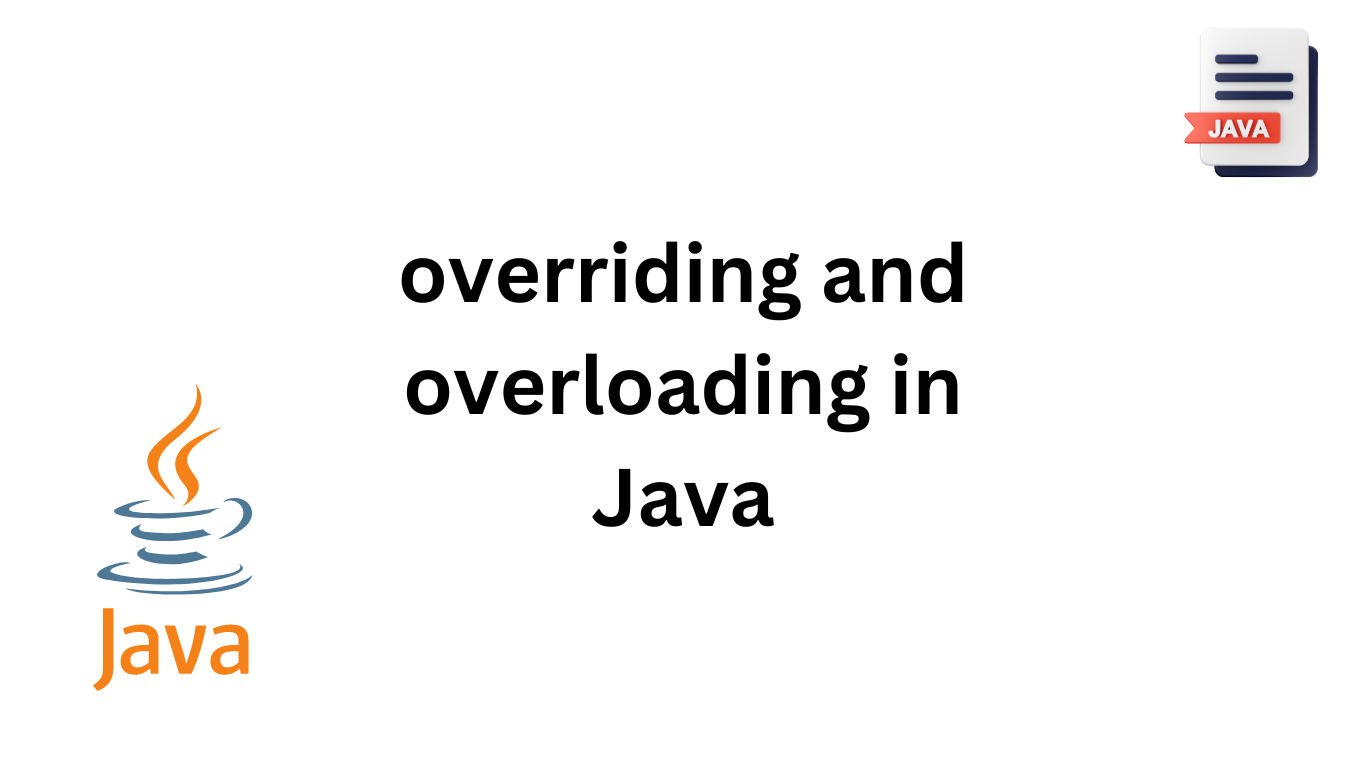| In overriding, method names must be the same. |
In overloading, method names must be the same. |
| The argument list must be the same. |
The argument list must be different, at least in the order of arguments. |
| The return type can be the same or a covariant type. Covariant types have been allowed since Java 1.5. |
The return type can be different in overloading. |
| The level of checked exceptions cannot be increased. |
There are no restrictions for unchecked exceptions. |
| Different exceptions can be thrown in overloading. |
A method can only be overridden in a subclass. |
| Private, static, and final variables cannot be overridden. |
Private, static, and final variables can be overloaded. |
| In overriding, the method to be called is decided at runtime based on the type of object referenced at runtime. |
In overloading, the method to call is decided at compile time-based on the reference type. |
| Overriding is also known as runtime polymorphism, dynamic polymorphism, or late binding. |
Overloading is also known as compile-time polymorphism, static polymorphism, or early binding. |
